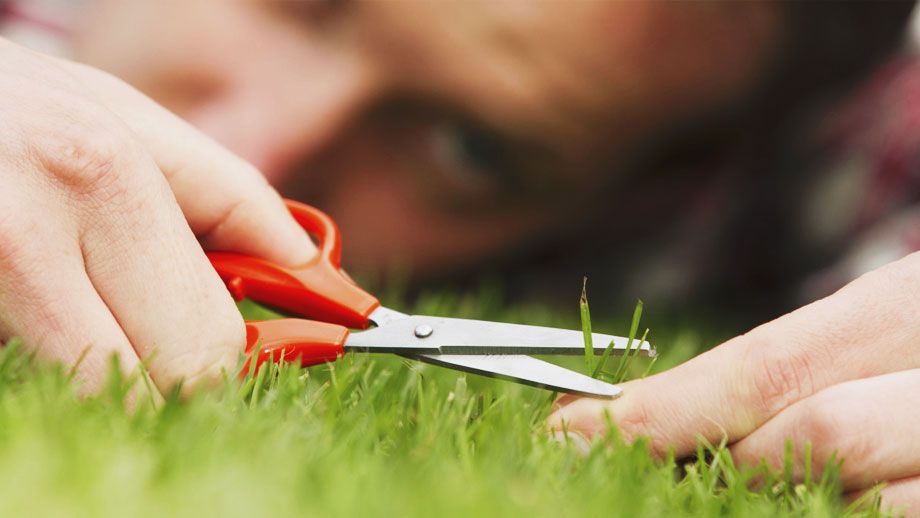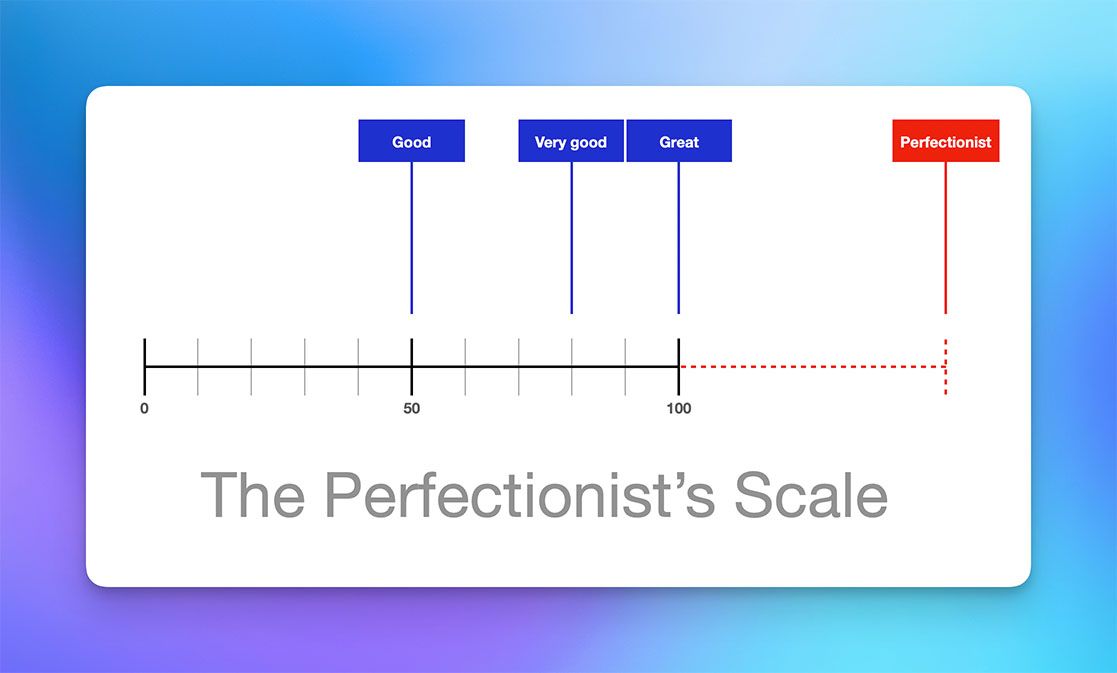How to Overcome Perfectionism

If you suffer from perfectionism, nothing is ever good enough. Your own work always seems like it sucks even if might be exceptional in the eyes of others.
Perfectionism can make it difficult to accept your own work and sometimes even the work of others. You may find yourself constantly tweaking and perfecting your own efforts until you are overwhelmed, or simply avoid starting new projects altogether out of fear of failure.
Just to be clear, perfectionism doesn't mean you deliver perfect results. More often than not, people suffering from perfectionism actually never deliver anything, at least not on time.
When they write a thesis, they might obsess about looking for the best font rather than just writing the damn thing. When creating a PowerPoint presentation for their boss, they will spend hours looking for the best quote to make a good opener, rather than just making the outline and finishing the first draft in an hour.
Hey, but what about healthy perfectionism?
Make no mistake, Procrastination is bad, mkay?
When I talk about this topic in my training sessions, many people often disagree. They say perfectionism is healthy and it's good to try to do things well and not slack off. Yes, this is absolutely true. Doing things well is important and right. However, it has nothing to do with perfectionism.
A healthy person finishes his work when the project is done; a person suffering from perfectionism will never finish it.
This why...

It can be difficult to know when striving for excellence has gone too far. Is it still healthy to pursue quality, or has it become obsessive perfectionism?
A helpful way of determining if your behavior is harmful is to ask yourself: Does it have a negative impact on my life? If so, it might be time to step back and do something about it.
How to get rid of perfectionism (or at least reduce it)
1. Acknowledge that you are a perfectionist.
Don't just joke about it with your friends over a beer - take a moment to reflect on all the negative aspects of your perfectionism and accept that it is a problem. Make a conscious decision to work on it and make a positive change.
However cheesy this step might sound, it's absolutely necessary on your way to getting rid off this bad habit and finally becoming a happy and high-performing individual.
Once you have admitted that you are a perfectionist and have decided to make a change, it is important to take concrete steps to develop healthier habits.

2. Identify the areas where you are most prone to perfectionism.
When it comes to overcoming perfectionism, it is important to be aware of the areas in which you are most prone to perfectionism. This could include anything from school projects to work performance to home life.
Perfectionism and overthinking often go hand in hand. Perfectionists often feel the need to overanalyze and overthink every situation in order to make sure that everything is perfect. Overthinking can lead to stress, anxiety, and low self-esteem, as the perfectionist is often never satisfied with the outcome. It can also lead to unnecessary and unhelpful rumination on past events, which can prevent the perfectionist from moving forward. It can prevent perfectionists from taking risks and enjoying the present moment, which can negatively impact their lives.
3. Is the extra effort really worth it?
If you suffer from perfectionism at school, you might find yourself spending too much time trying to get the perfect grade on a test, or at work you might constantly strive for perfection to get the best results. At home, you might be spending too much time cooking the perfect meal or cleaning the house to the highest degree.
In all of these situations, it is important to recognize when perfectionism has become excessive and negatively impacts your life. Take a step back and ask yourself if the extra effort is worth it. Is it a healthy pursuit of excellence or has it become obsessive perfectionism? This will help you determine when it is time to let go of perfectionism and move on.
4. Repeat these two ideas to yourself
DONE IS BETTER THAN PERFECT.
GOOD ENOUGH IS GOOD ENOUGH.
5. Work the best you can, but not better.
It is important that you give your best. But what is the best? It's almost always possible to have another coffee and work longer, harder, and better, right?
Well, yes and no. Everything can be improved over time but in order to keep improving you need to keep actually delivering your work.
Think of your work as a computer software. Ever noticed how they constantly update it? Version 1, version 1.0.1, version 1.2... It slowly gets better over time.

Look at the picture above. This is how the first Instagram version looked. Was it perfect? For sure not. Did it work? Yes.
So the big question is, should the developers wait for months or maybe years and postpone the launch to make it better? Well, you be the judge :)
6. Define done before your start
When are you done? When you have nothing left to improve on your project? No way. There's always something to improve. Take any product and you can always think of x number of things that could be changed for the better.
So based on what will you know that your PowerPoint presentation, Excel spreadsheet, website mockup, meeting minutes... are finished? You have to determine that for yourself and you have to define these boundaries up front - clearly and measurably.
For example, when I started writing this article, I told myself it had to be at least 750 words. Now it's over 900, so I'll probably be slow to finish :) Is it perfect? Certainly not. Is it "good enough"? I believe so.
The challenge with perfectionism is knowing when to call it quits. There is always something that could be improved, tweaked or changed, so it is important to set measurable boundaries for yourself when beginning a project. For example, if you are creating a PowerPoint presentation, decide how long it will be or how many slides it will have. Make a clear, measurable goal.
When you have reached this goal, it is time to set the project aside and call it finished. It might not be perfect, but it is “good enough” and you can move on to the next task. This will help you avoid getting lost in the endless pursuit of perfection.
